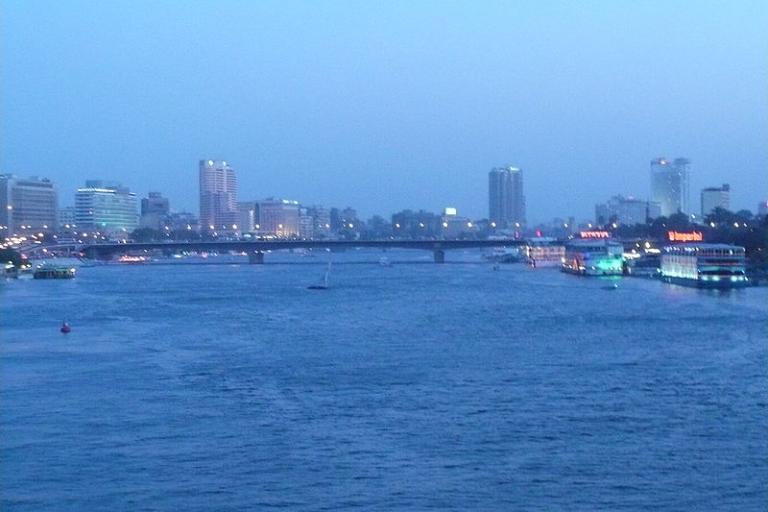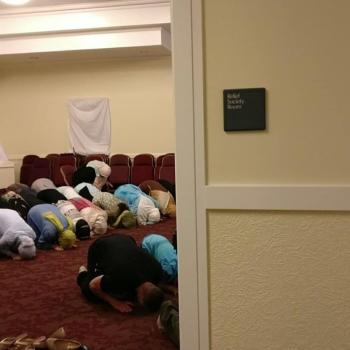
I’ll complete the analogy in the next installment:
In 1798, Napoleon Bonaparte, the ruler of France, occupied Egypt. This was a crucial event, symbolically and realistically. For that reason, Marshall Hodgson chose it as the event that marked the beginning of the “Modern Period” of Islamic history. (For convenience’s sake, he rounded the number off to 1800.) Why was this event so important? A Western nation had managed to take control of one of the central and largest of Islamic states. Cairo, the greatest Arab city, was under the control of foreigners. Foreigners, of course, had been ruling Egypt for some time. Indeed, they had been ruling since the Persian conquest of Pharaonic Egypt in the sixth century before Christ. Persians, Macedonians (the Ptolemies, who included Cleopatra), Romans, Byzantines, Arabs, Kurds, Turks, Circassians, Ottomans, even Albanians—the rulers had come and gone, but no real Egyptian ruled Egypt for 2500 years until the 1952 revolution, which eventually put Gamal Abdel Nasser, Anwar al-Sadat, Hosni Mubarrak, and their successors in power. It was not Napoleon’s foreign nationality, nor his inability to speak Arabic, that marked his occupation of Egypt as something new and different. The surprising fact about the French takeover was not that another foreign elite had replaced the preceding one, but that this new foreign elite was Christian.
And the French were soon replaced by the British, but that hardly mattered. The British were still Christians. Furthermore, before long, many of the other Islamic nations had fallen to Western control, if not to outright Western governance. India was the brightest jewel in Queen Victoria’s crown. Of all her titles, including the title of “Defender of the Faith” that she had inherited from her predecessor, Henry VIII, it is said that she most enjoyed “Empress of India.” Iran, though nominally independent, took orders from the British and Russian ambassadors. The French and Spanish quarreled over Morocco, while the French ruled Algeria. Not to be left out, the Italians conquered Libya.
This was politically humiliating. But it was also troubling in another very important way, a way that goes far beyond mere politics. A hypothetical analogy may help bring home something of the emotional impact that the modern age has had upon many Muslims.
As Latter-day Saints, we are used to hearing of new milestones reached by the Church. Missionaries enter new nations, spectacular new temples are dedicated, stakes are divided, hundreds of thousands of converts enter the faith each year. We have come to expect this. And we expect it not merely because it has happened so regularly in the past, but also because, according to our theology, this is exactly the way it’s supposed to happen. We are living in the dispensation of the fulness of times. The gospel has been restored for the last time. It is the stone cut out of the mountain without hands, a stone that will come ultimately to fill the whole earth.[1]
With a few changes, the last lines could easily have been a description of Islam’s view of itself. Muhammad, Muslims affirm, is the last of God’s messengers, “the seal of the prophets.” Islam is the last revealed religion. Islam is superior to other religions and is destined to triumph. And, indeed, if one looks even briefly at Islamic history, it is clear that Islam did triumph for many years. Within a century of the death of the Prophet, Muslim soldiers had fought their way from the Arabian peninsula across the vast expanse of North Africa and up through Spain into France. They had eliminated one of the two great Mediterranean empires of the era, the Persian, and had taken away some of the richest provinces of the Byzantines. Egypt, the breadbasket of the ancient Roman Empire, was theirs.
[1] Daniel 2:34-35.












